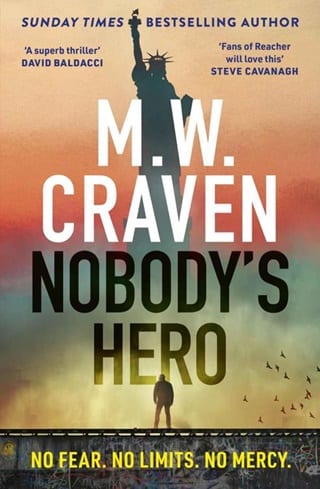Chapter 82
In 1947 the United States charged Yukio Asano, a Japanese officer, with war crimes for waterboarding a US citizen. Sixty years later it was official US policy. Which was five hundred years after it had been the official policy of the Inquisitors. Spain's Tribunal of the Holy Office of the Inquisition used the ‘water cure', under strictly controlled conditions, when all other methods of getting a confession had failed. It polarised Spaniards in the fifteenth century just as it polarises Americans now.
Its champions claim that compared with what the myriad enemies of the US are prepared to do, waterboarding is a mild inconvenience. It's a high-intensity, kinetic interrogation, but it leaves the detainee unmarked and undamaged. It's as effective at extracting information as electric shocks, amputations and burning.
To its detractors, waterboarding is torture. There is no grey area. It's controlled drowning, and it opens a door that cannot be closed. It's also an ineffective vengeance-based fantasy, as likely to extract junk information as anything useable. They point to a Cambodian man who was tortured by the Khmer Rouge. During his interrogation he confessed to being a Catholic bishop, a CIA spy, a Buddhist monk, the son of the king of Cambodia and a hermaphrodite. He was actually a schoolteacher who happened to speak French. Their point is that people will say anything to make torture stop. A more practical argument is that if the US allows waterboarding, it can't complain when other regimes use it on captive US citizens.
Koenig fell somewhere in the middle. There were two sides to the argument, and he didn't trust the people who refused to acknowledge that. He'd been through waterboarding when he'd undertaken Survival, Evasion, Resistance and Escape training with Marine Recon. All US special forces go through SERE. It's worst-case scenario training, and he'd gotten himself added to one of the programmes. And the one thing he'd taken from his time in the chair was that waterboarding was torture. Even for someone who couldn't experience fear, it was a horrific experience. It didn't simulate drowning; you were drowning. Waterboarding was torture and torture was wrong. It was immoral and it spat out information that couldn't be trusted. It had to be verified. And if you had the capabilities to verify information, why bother using torture in the first place?
But on incredibly rare occasions, time simply didn't permit anything else. The threat was imminent, and the fallout so catastrophic that to do nothing was to be complicit.
They carried Nash, still strapped to the kitchen stool, to the white leather couch in the sunken living room. Draper positioned the stool so its legs were on the cushions and the back rest was on the raised arm. The stool and the couch arm formed a simple machine. The stool was the rigid beam, and the couch's arm was the fulcrum. When the time came, Koenig would lift the stool's legs, which would put Nash's feet above her head.
Nash didn't react. Not everyone did when it came to waterboarding. It was a strange kind of torture. Compared to the pliers and the blowtorches, it seemed cerebral. Like you could manage it by staying calm. That it would only work if you allowed it to work. That changed when the hypothetical met with reality. Even with a prearranged stop signal, Koenig had seen twenty-year veterans of the Marine Corps refuse to strap themselves to the board. But Nash was serene and calm.
They went back for Hobbs and turned his stool so he faced his daughter. It was as if the sunken living room was the stage and the kitchen was the dress circle. The tier above the stalls. Best seats in the house. Close enough to be immersed in the action, not so close you missed anything.
‘If so much as a single hair on her head gets wet, I'll kill you,' Hobbs said. His voice was flat and cold, but his eyes told a different story. They burned hot and angry. ‘I'll kill you all.'
‘I thought you weren't a killer?' Draper said.
‘Don't test me on this. You have no idea what I'm capable of.'
‘Oh, I think we do.'
‘You look scared, Mr Hobbs,' Koenig said.
‘If that bitch hurts my baby, you'll be looking over your shoulder for the rest of your life. You think I'm scared? I swear you don't know the meaning of the word.'
‘You're right there, Mr Hobbs,' Draper said. ‘He doesn't.'
 Fullepub
Fullepub 



